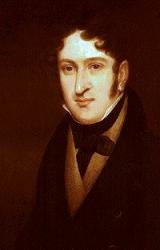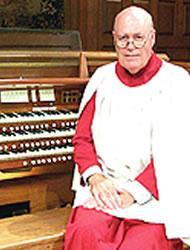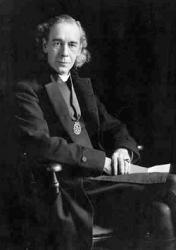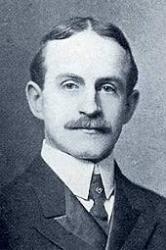
1786 - 1855 Hymnal Number: 233 Composer (attributed to) of "MADRID" in El Himnario Bishop, Henry Rowley, was born at London, Nov. 18, 1786, and died at London, April 30, 1855. See a full notice in the Dictionary of Nat. Biog., v., 91. From 1840 he was occasional and from 1843 to 1848 sole conductor of the Antient Concerts. Of his Twelve Corales...as sung at the Concerts of Ancient Music, for which (with Words expressly written to them) they were adapted and arranged by Sir Henry R. Bishop, 1844 (B. M. copy is H. 878), some are fairly literal translations from the German, others have no connection with their nominal originals. Three were noted in this Dictionary, but their source not having been traced in 1892, we now subjoin them:—
1. Behold, how glorious is yon sky, p. 127, ii. This is from "Wie herrlich ist die neue Welt" in C. H. Graun's oratorio Der Tod Jesu, 1756 (B. M. copy, 11. 1805, catalogued as 1766), the words being by Karl Wilhelm Ramler, b. Feb. 25, 1725, at Colberg, in Pomerania; 1748, Professor of Literature at the Cadet School in Berlin; d. at Berlin, April 11, 1798.
2. God is our Refuge in distress, Our Shield, p. 325, i.
3. O let us praise the Lord, With hearts of true devotion, p. 963, ii., No. 4. The Winchester Hymn Book, 1857, alters stanza i., the original line 1. 3, 4 being:—
"Whose spirit roams abroad,
To calm life's troubled ocean."
Another fairly close version is,"Wake, O wake! a voice is crying," from "Wachet auf," p. 805, ii. [Rev. James Mearns, M.A.]
--John Julian, Dictionary of Hymnology, New Supplement (1907)
Henry R. Bishop


 My Starred Hymns
My Starred Hymns







